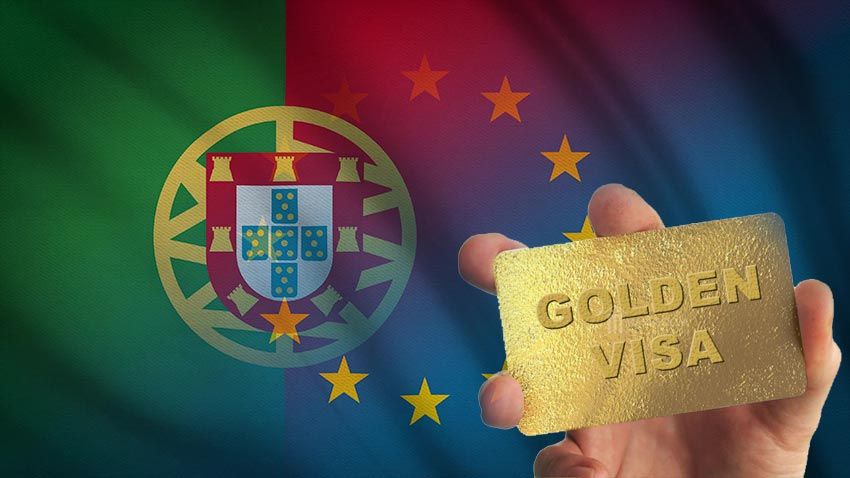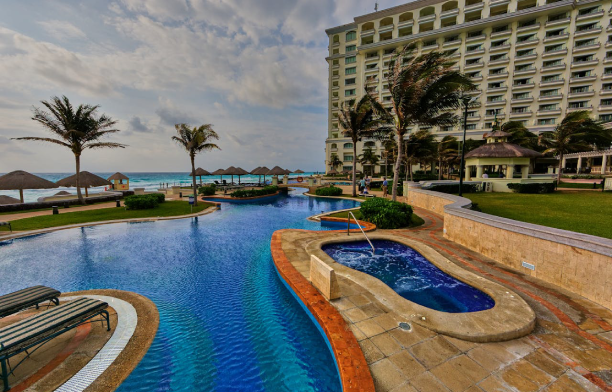With capital investments in various sectors of the economy, particularly in global boutique hotel projects run by Bay Street Capital Holdings and subsidized by the Portuguese government, foreign investors can easily achieve their residency goals.
So, whether you're looking forward to taking advantage of the Portuguese growing economy or to enjoying the high quality healthcare and education, the Portugal Golden Visa provides a streamlined path for Golden Visa applicants to live and do business in one of Europe's best socio-economic regions.
This blog provides relevant information to guide you in your Portugal Golden Visa application and helps you avoid complicated processes.
Key Takeaways
- The Portugal Golden Visa program enables non-EU Golden Visa applicants to gain residency (and potential citizenship) through capital investments in an approved private equity or venture capital fund in the country, among other options.
- It offers access to a thriving economy, top-tier healthcare, education, visa-free travel in Europe, and attractive tax benefits.
- This visa is versatile, allowing investments in various sectors such as arts, research, entrepreneurship, and job creation.
- The program no longer supports real estate or property investment as a means to a Golden Visa.
- Bay Street's Alt Path hotel fund provides direct access to investing in promising assets and obtaining a Portugal Golden Visa.
Disclaimer
The contents of this article are for educational purposes only. They are not intended to be a source of professional investment advice. You will find experts on investing here.
The Portuguese Golden Visa Program
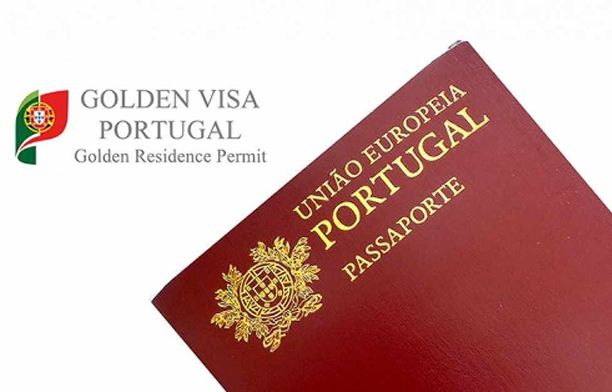
In 2012, Portugal initiated the issuance of residence permits through investment, marking the inception of the highly sought-after Golden Visa Program. Garnering widespread popularity among investors, the program has welcomed over 11, 000 applicants (and their families making a total of over 32,000 individuals) into Portuguese residency since its introduction.
Investors navigating this pathway can opt for one of five enticing options: supporting arts and cultural heritage, financing research activities, acquiring private equity or venture capital fund units, initiating a new business venture that leads to employment, or investing in an existing enterprise and sustaining employment.
For those who choose to invest in fund units, the prospect of reclaiming the capital within 5-10 years through asset resale provides an additional appeal to the program. Additionally, after maintaining Portuguese residency for five years, which does not mean staying permanently or spending extended periods in Portugal, both the investor and their family can apply for citizenship.
Golden Visa holders uphold their residence status by dedicating a mere seven days per year to the country, underscoring the program's commitment to providing a streamlined and attractive avenue for investors seeking international residency. But there's been some changes to the program since December 2023.
Important Portugal's Golden Visa Program Updates
Towards the close of 2023, the Portuguese government announced significant developments regarding the Portugal Golden Visa program. These include:
Inclusion of the application period
The application period, ranging from 6 to 18 months, will now be considered as part of the 5-year qualifying period for citizenship. This promising update is expected to expedite the passport acquisition process and grant the coveted rights to reside in the European Union.
Withdrawal of the NHR tax rule
It is important to note that the Non-Habitual Resident (NHR) tax regime has been officially withdrawn. However, for individuals who initiated their relocation to Portugal in 2023, the NHR tax regime remains accessible.
Removal of real estate options
The significant change in 2023 was the exclusion of property investment as a qualifying option; which is a move to address the nation's current real estate situation. That doesn't mean that an investor can no longer pursue a real estate investment, however, purchasing real estate is no longer a path for a Portugal Golden Visa.
As we navigate through 2024, prospective investors can explore the following investment routes:
€250,000 donation to Arts.
€500,000 donation to research activities.
€500,000 capital transfer to private equity or venture capital Funds.
Creation of a company that has a minimum 10 employees.
€500,000 share capital transfer that maintains 10 jobs (used to be five permanent jobs).
Despite the modifications announced in December 2023, the Golden Visa program for the current year remains open and operational. There has been a consistent influx of new applications, which underscores the continued popularity of the program.
It's worth highlighting that the Portugal Golden Visa remains a unique pathway to acquiring an EU passport without the requirement of a minimum 6-month stay at the specified investment level. While Malta offers an alternative for EU rights, the Portuguese Golden Visa stands out with the advantage of achieving passport acquisition within 18 months.
Venture capital and private equity funds within the Portuguese landscape are currently the preferred choice for new applications. These funds offer a diverse array of investment options and notably require no active management from the investor, eliminating the need for a government donation.
Qualifying investment funds, which comes with great features and incentives such as fixed returns, guaranteed buyback, upfront interest payments, and no fees, are experiencing rapid subscription.
Bay Street’s Alt Path Fund
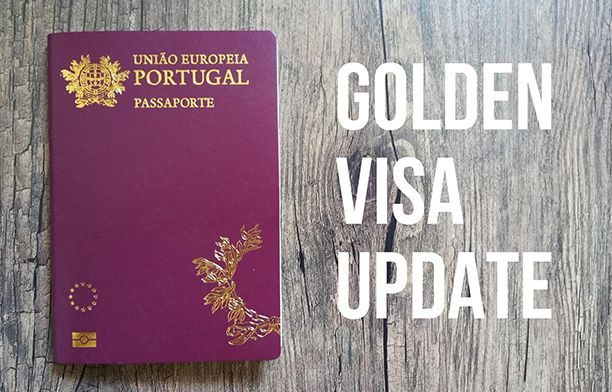
One strategic approach to the Portugal Golden Visa is by investing in Bay Street's Alt Path and complementary funds. Now that the real estate or property investment option is no longer available, investing in our hotel fund remains a useful means to obtain the visa and both diversify and hedge your investment.
Beyond the traditional routes of supporting arts, financing research, or creating new businesses, channeling your investment into hotel assets brings forth a distinctive set of advantages. The hotel industry, a key contributor to Portugal's tourism sector, not only creates jobs but also contributes significantly to the nation's cultural and economic heritage.
Partnership with Bay Street
As an investment fund operating in collaboration with a General Partner in Portugal, Sheree Mitchell, our firm serves as a strategic gateway to the hospitality sector. Through our expertise in hotel asset management, we guide investors in making informed decisions, ensuring that their investment not only meets the Golden Visa requirements but also thrives in the competitive landscape of the Portuguese hospitality market.
Bay Street Capital Holdings represents one of 40 private equity or venture capital funds approved by the Portuguese government to foster capital investments into the nation's economy and facilitate Golden Visa applications. Our funds offer a streamlined process for you to both invest in promising assets, such as our boutique hotels, and apply for a Portugal Golden Visa. Check here to learn more.
Do you need a Portuguese Visa?
The US is among 66 nations including Schengen states, and the UK whose citizens can enjoy brief visits of up to 90 days in Portugal without needing a visa. Furthermore, citizens of EU member nations can legally stay beyond the 90-day limit by simply registering at a Portuguese address; other nationals have to secure national visas.
Various Portugal Visa programs
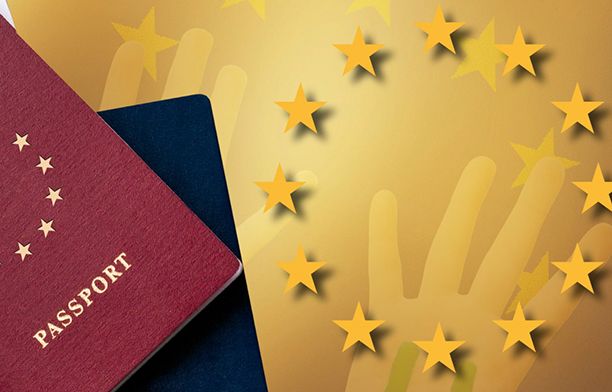
There are three main types of Portuguese Visas:
Short Stay visas
Temporary Stay National visas, and
Long Stay National Visas.
Let’s go through each type of visa.
1. Short-stay Visa (Schengen Visa)
Short Stay Visas, commonly referred to as Schengen Visas, are intended for stays in Portugal of up to 90 days. Citizens of EU/EFTA countries and those from 61 other nations with visa-free agreements with Portugal do not require this visa for visits of fewer than 90 days.
These visas are granted for purposes such as tourism, visiting family, airport transit, and other temporary travel needs, allowing holders to move within the Schengen area. There are various types of Portuguese Schengen visas available, including the General Short Stay visa, Seasonal Work visa, and Airport Transit visa.
The standard fee for a Schengen visa is €80, with a reduced rate of €40 for children aged 6 to 12. Citizens of certain countries, including Albania, Armenia, Azerbaijan, Bosnia, Georgia, Macedonia, Moldova, Montenegro, Russia, Serbia, and Ukraine, are eligible for a discounted fee of €35. Children under six are exempt from paying any visa fee.
2. Temporary Stay National Visa
Temporary Stay National Visas are required for individuals planning to remain in Portugal for more than 90 days. These visas permit stays of up to one year, allowing entry into Portugal at any time during that period. EU/EFTA nationals and their family members are exempt from this requirement.
Even if you belong to a country with a visa-free travel arrangement, obtaining a Temporary Stay visa is mandatory for stays exceeding 90 days in Portugal. Various types of Temporary Stay visas are available to accommodate different purposes such as employment, education, professional training, medical treatment, youth exchange programs, self-supporting endeavors, and religious activities.
The application fee for a Temporary Stay national visa is €75, with an exemption for children under six years old.
3. Long-stay National Visa (Residency Visa)
Long-stay National Visas, also referred to as Residency Visas, are designed for stays in Portugal exceeding one year. Non-EU/EFTA citizens must obtain this visa, even if their country benefits from visa-free travel arrangements with Portugal.
Applying for this visa entails seeking a residency permit from the Portuguese Immigration and Borders Service (SEF). Applicants must demonstrate their ability to financially support themselves throughout their intended stay.
There are various types of long-stay national visas, catering to different purposes such as employment, education, family reunification, and investment opportunities like the Portugal Golden Visa, Portugal D7 Visa, and D2 Entrepreneur Visa. The fee for a Long Stay national visa is €90.
Long-stay National Visas
Let's take a look at these residence permit visas.
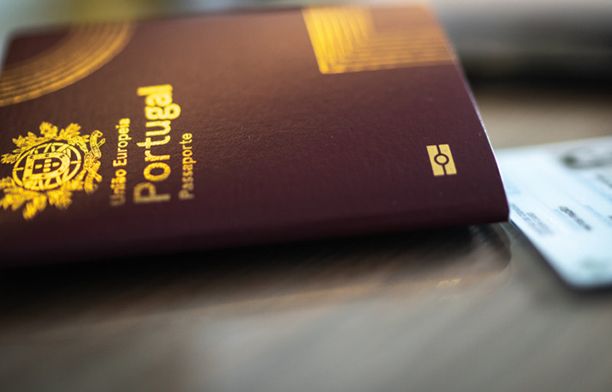
1. Portugal D2 Visa
The D2 Visa is a Portuguese residency pathway designed for entrepreneurs, freelancers, and independent service providers residing outside the EU/EEA/Switzerland who desire to establish themselves in Portugal. While not as well-known as the Portugal D7 Visa or the Portugal Golden Visa, it offers a pathway for those seeking to establish or invest in businesses in Portugal.
Eligibility for the D2 Visa is open to individuals aiming to launch a new business, relocate an existing one to Portugal, or invest in Portuguese enterprises. This visa is particularly geared towards fostering foreign investment in small and medium-sized businesses to bolster the country's economy.
Applicants must present a viable business plan, which will be assessed based on its potential economic, technological, and cultural contributions. The scope of business ventures can vary widely, ranging from restaurants to tech startups.
In terms of financial requirements, the D2 Visa falls between the D7 Visa and the Golden Visa. While the Golden Visa demands a minimum investment of €375,000 and the D7 Visa necessitates proof of passive income, the D2 Visa mandates proof of the business's viability.
Applicants are advised by immigration firms to invest a minimum of €50,000 in the company's share capital, with higher investments potentially increasing the likelihood of visa approval. Additionally, applicants must demonstrate sufficient financial resources to support themselves while residing in Portugal.
Family reunification is permitted under this visa, which grants accompanying family members the same residency rights. Similar to the D7 Visa and Golden Visa, holders of the D2 Visa can apply for permanent residency after 5 years and citizenship after 6 years. To qualify for permanent residence, applicants must have spent at least 6 consecutive months in Portugal within the preceding 5 years.
2. Portugal D7 Visa
The Portugal D7 Visa, also referred to as the Retirement or Passive Income Visa, is designed for individuals who wish to reside in Portugal without engaging in employment. While commonly associated with retirees, this visa is also suitable for remote workers and digital nomads.
Established in 2007, the Portugal D7 Visa does not require any investment. It is tailored for non-EU/EEA/Swiss citizens who possess a reasonable passive income, which can stem from various sources such as real estate, retirement pensions, or salaries.
To qualify for this visa, the main applicant must demonstrate a minimum annual passive income of €8,460. Additionally, 50% of this amount (€4,230) is required for a spouse, and 30% (€2,538) for each dependent child. Therefore, a couple with one child would need approximately €15,300 annually to meet the eligibility criteria for the D7 Visa.
Applicants are also required to spend a minimum of 16 months in Portugal within the first 2 years of obtaining the visa. Alongside a clean criminal record, proof of address in Portugal (either through rental or property ownership) is necessary during the application process.
Furthermore, family reunification is permitted under this visa, granting accompanying family members the same residency rights as the main applicant.
3. Portugal Golden Visa
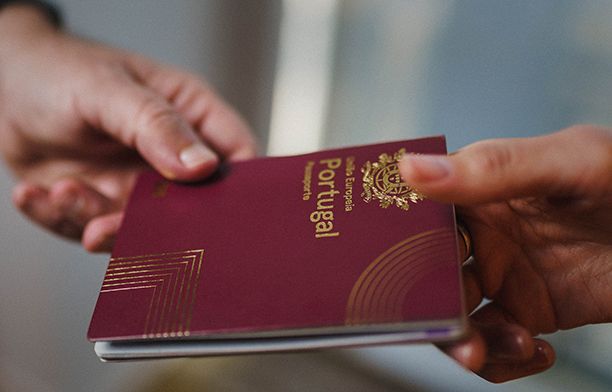
The Portugal Golden Visa investment routes might be suitable for you if you have the funds to make a capital investment in the country. One of the most attractive Golden Visas in the world, the Portugal Golden Visa allows non-EU citizens to get a long-term residency permit, and potential citizenship.
Moreover, you do not need to live in Portugal to be eligible for this visa. As a Golden Visa holder, you are required to be present in the country for a minimum of 7 days during the initial year and 14 days in each following year. Furthermore, this visa allows for family reunification where your family members are granted the same residency rights as you.
As mentioned before, getting Portugal's Golden Visa no longer works with the purchase of real estate, but the program includes various investment options to suit different preferences.
Take advantage of Bay Street's easy access to a Portugal Golden Visa.
Let's consider the investment options for a Portugal Golden Visa.
€250,000 Donation to Arts and Heritage
You can enhance your Golden Visa journey by supporting the arts or contributing to the restoration of national heritage. A donation of at least €250,000 can kickstart a cultural endeavor, and you can get a 20% discount if your project happens in a low-density area.
Creation and Maintenance of 10 Jobs
Another route is by making an impact on Portugal's job scene by creating and maintaining ten jobs during the necessary period. It's a practical way to contribute to the local economy while securing your Golden Visa.
€500,000 Contribution to Scientific Research
You can also explore the fields of science and technology with a research contribution of 500k. Ideal for those passionate about innovation, and yes, you can enjoy a 20% discount if your scientific project is in a low-density area.
€500,000 Share Capital Investment and Job Creation
Similarly, you can take the entrepreneurial route by incorporating a company or reinforcing share capital with a 500k investment. Combine this with creating five jobs or maintaining ten, with at least five of them being permanent positions.
€500,000 PE or VC Fund Investment
Consider making a capital transfer in the investment scene by contributing at least 500k to a qualified investment fund. A prudent move that not only aligns with financial growth but also opens doors to your Golden Visa journey.
There are specific costs to take into account in addition to the investment amount for the golden visa. These include:
Legal Fees: Typically €5000 for the first year. Subsequently, €1500 every two years for renewals.
Government Fees: Per applicant, €6394 for the first year. Followed by €3488 every two years thereafter.
Besides the investment and fees, applicants are required to open a Portuguese bank account. Investors must possess a clean criminal record, comprehensive health insurance, and submit their applications along with full biometrics. This necessitates one visit to Portugal during the application stage.
Requirements to set up a Portuguese bank account:
Proof of ID (e.g. passport)
Proof of address (like a recent utility bill)
NIF number
Proof of income (e.g. a recent pay-slip)
Portuguese phone number (for SMS activation).
Benefits of the Portuguese Golden Visa
A Portugal Golden Visa provides various socio-economic benefits for the visa holder and their family members that ranges across education and healthcare to travel and taxes.

Visa-Free Travel around Europe
Golden Visa applicants can take advantage of traveling without additional visas within Europe's Schengen Area and enjoy the privileges of residing in Portugal, including the right to live, work, and pursue studies. After five years as a legal resident, applicants have the opportunity to apply for Portuguese citizenship while retaining any existing citizenship(s).
Educational Excellence
With a Portugal Golden Visa, applicants get access to study at excellent international and Portuguese schools and universities. This opportunity is also available to an applicant's spouse and children.
Top-notch Healthcare
When it comes to safety and well-being, a Portuguese residency grants you access to international-standard healthcare through clinics and hospitals, and your stay in Portugal is characterized by the utmost care and security.
Tax Incentives
The tax advantages of a Portugal Golden Visa is another appealing benefit for foreign investors. Generally, capital gains are taxed at a fixed rate of 28%. Even for non-residents, the rate remains at 28%, which is comparatively favorable compared to many other European countries, for income earned within Portugal.
Comparing Portugal Visa Programs
Let's explore how the Portugal Golden Visa compares to other visa programs in Portugal, such as the D2 or the D7 programs.
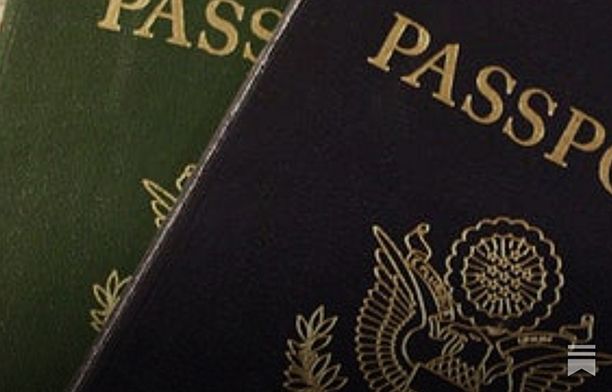
*Portugal D2 Visa vs Portugal Golden Visa8
Portugal D2 Visa and Portugal Golden Visa differ significantly in several key aspects:
Purpose and Eligibility
D2 Visa: The D2 Visa is designed for entrepreneurs, freelancers, and independent service providers residing outside the EU/EEA/Switzerland who desire to establish themselves in Portugal. It requires individuals to launch a new business, relocate an existing one, or invest in Portuguese enterprises.
Golden Visa: The Golden Visa is suitable for individuals with sufficient funds to invest in Portugal. It offers long-term residency permits and potential citizenship for non-EU citizens, primarily through investment routes like real estate, arts and heritage, scientific research, job creation, share capital investment, and fund subscription.
Investment Requirement
D2 Visa: The D2 Visa necessitates proof of the business's viability and typically requires a minimum investment in the company's share capital, recommended to be at least €50,000.
Golden Visa: The Golden Visa demands a minimum investment of €350,000 for real estate investments, varying amounts for other investment routes like arts and heritage, scientific research, job creation, share capital investment, and fund subscription.
Application Process
D2 Visa: The application process for a D2 Visa typically involves presenting a viable business plan, which is assessed based on its potential economic, technological, and cultural contributions. The process usually takes 3 to 4 months to obtain the visa.
Golden Visa: The Golden Visa application process can take up to a year. However, it allows for a brief stay of approximately one week in Portugal during the first year and 14 days in subsequent years.
Financial Requirements
D2 Visa: Apart from the investment in the business, applicants must demonstrate sufficient financial resources to support themselves while residing in Portugal.
Golden Visa: While there are significant investment costs involved, applicants are not required to show proof of passive income for the Golden Visa.
Costs
D2 Visa: The cost for a D2 Visa is typically less than €5,000, including application fees and professional service fees.
Golden Visa: The Golden Visa tends to incur higher overall expenses, including significant investment amounts and professional service fees, which can exceed €30,000. Additionally, there are government fees and legal fees associated with the Golden Visa application and renewal process.
Despite their differences, both visas offer family reunification benefits, and grant family members the same residency rights as the main applicant. Both pathways lead to eligibility for permanent residency after 5 years and citizenship after 6 years.
Portugal D7 Visa vs Portugal Golden Visa
Portugal Golden Visa and Portugal D7 Visa share some similarities but differ significantly in a number of areas:
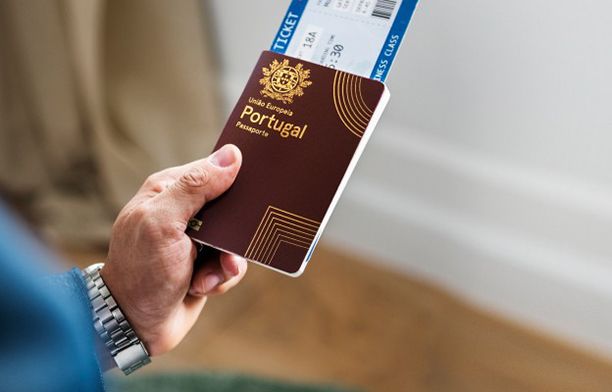
Minimum Investment
D7: The primary contrast lies in the investment requirement. The D7 Visa requires no upfront investment, except a proof of significant passive income for the applicant.
Golden Visa: While the Golden Visa demands a minimum investment of €375,000 and even larger amounts depending on applicant's investment preferences.
Application Process
D7: The application process for the D7 Visa is notably short, typically taking only 3 to 4 months to obtain; but it requires a minimum of 6 months' residence in Portugal within a year.
Golden Visa: The Golden Visa process can extend up to a year. However, this Visa only requires a brief stay of approximately one week in Portugal.
Fees & Proof of Income
D7: The D7 Visa requires proof of passive income but its cost typically amounts to less than €5,000.
Golden Visa: The Portugal Golden Visa does not require proof of funds. Additionally, the Golden Visa tends to incur higher overall expenses due to professional service fees, such as legal fees, which can exceed €30,000.
Despite these differences, both visas offer family reunification benefits, and grant family members the same residency rights. Furthermore, both pathways lead to eligibility for permanent residency after 5 years and citizenship after 6 years. Additionally, both visas provide access to the non-habitual tax regime, an appealing fiscal opportunity.
Comparing Golden Visa programs
Besides Portugal, several other EU nations provide Golden Visa programs. Their prerequisites overlap with Portugal's but there are distinct differences that change from nation to nation.
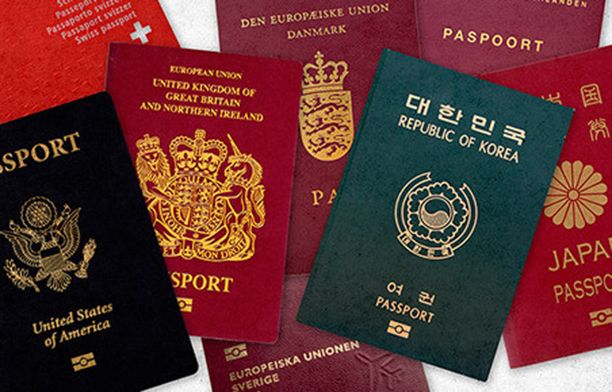
Portuguese Golden Visa
Unlike its other EU counterparts, the Portugal Golden Visa no longer includes a real estate option. Furthermore, the Visa permits the option, though not an obligation, to reside in Portugal.
Simply by dedicating a minimum of seven days annually to the country, the residency permit remains in force. After five years as a Golden Visa holder, both the investor and their family are eligible to apply for permanent residency or citizenship in Portugal.
Malta Golden Visa
Fulfilling various investment criteria is a prerequisite for the Malta Golden Visa. This includes acquiring or leasing real estate, settling government fees, and making a charitable contribution. Additionally, maintaining a capital of 500k, with at least 150,000 in liquid financial assets, is mandatory.
The permanent residence card necessitates renewal every five years, with annual checks during the initial five years by the Residency Malta Agency to ensure compliance with the stipulated conditions.
Greece Golden Visa
With one of the lowest investment requisites in the European Union, the Greece Golden Visa Program allows the rented-out use of the investment property. After five years, investors can secure permanent residency and subsequently divest the property to recoup their investment.
Italy Golden Visa
Italy issues a two-year residence permit, which is extendable for an additional three years if the investment is sustained. Residence in Italy is not obligatory for those who do not seek citizenship. Golden Visa holders become eligible for naturalized citizenship under standard conditions after residing in the country for a decade.
Spain Golden Visa
In obtaining a Spain Golden Visa, investors and their families are exempt from language and cultural exams. There is no compulsion to reside or spend time in Spain, and the legislation permits the leasing of investment properties. Permanent residency can be acquired after several years of residence, and citizenship becomes an option after an additional five years.
Spain vs Portugal Golden Visa
The Spain Golden Visa does not automatically confer Spanish citizenship unless you are a national from one of Spain's former colonies. These include Mexico, Peru, Argentina, the Philippines, Cuba, Bolivia, Chile, Colombia, Costa Rica, the Dominican Republic, Ecuador, El Salvador, Guatemala, Honduras, Venezuela, Panama, and Paraguay.
While the Portugal Golden Visa program also does not provide immediate citizenship, the process of obtaining permanent residency (PR) and citizenship is comparatively less complex and faster.
Under this program, you are initially granted a two-year residence permit, renewable until you complete five years. After this period, you can apply for a permanent residence permit, even if you haven't resided in Portugal throughout. Citizenship eligibility is then attainable after the completion of the fifth year.
Take the Bay Street Path
If you're interested in diversifying your investments and obtaining a second residency in Europe, investing in our Alt Path hotel fund is an easy and straightforward way to go about it.
Open a conversation here to get started.
Sources
https://getgoldenvisa.com/portugal-golden-visa-program
https://immigrantinvest.com/golden-visa-en/#spain_golden_visa
https://www.globalcitizensolutions.com/spain-portugal-golden-visa/
https://www.globalcitizensolutions.com/open-a-bank-account-in-portugal/
https://www.portugal.com/travel/guide-to-portuguese-visas-types-of-portugal-visas/


